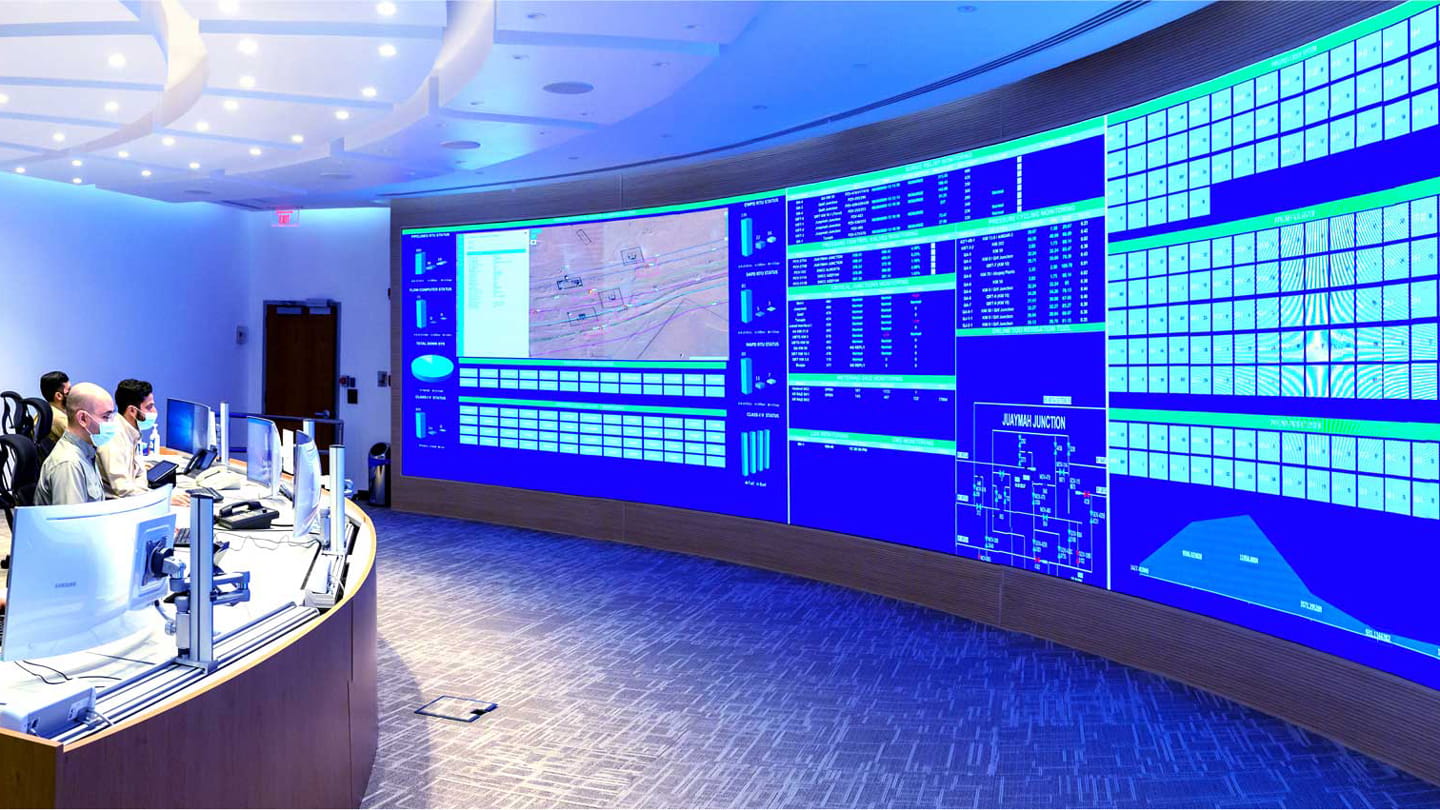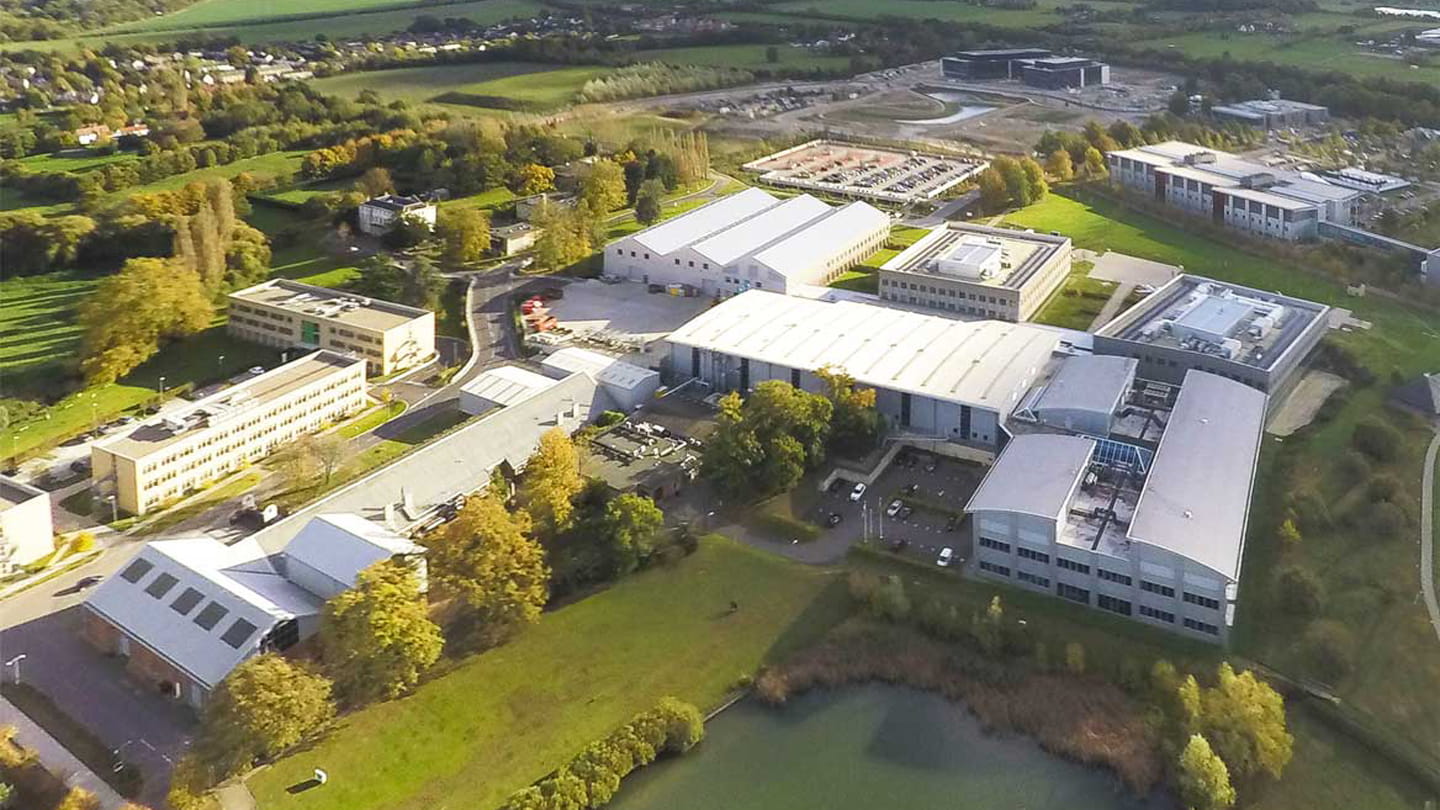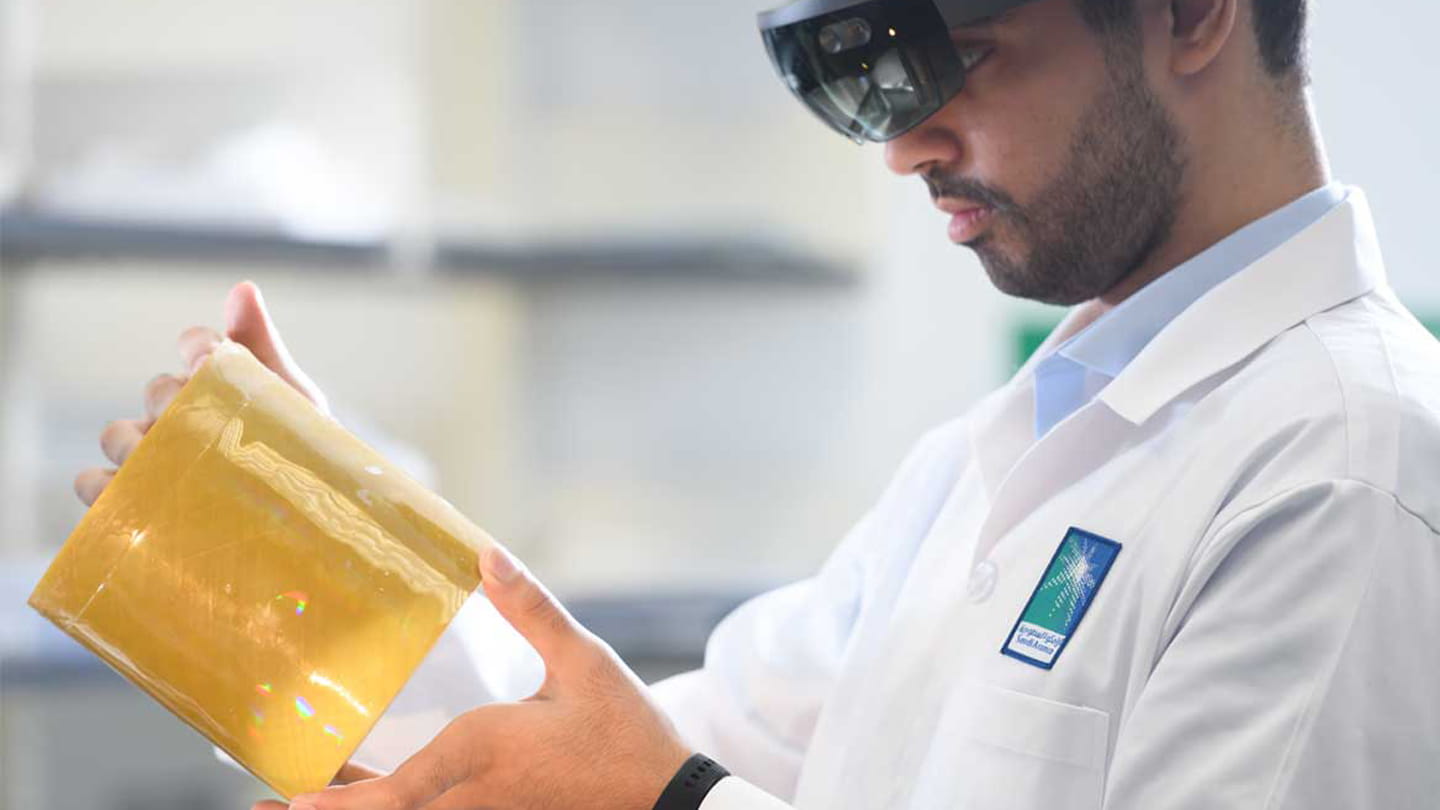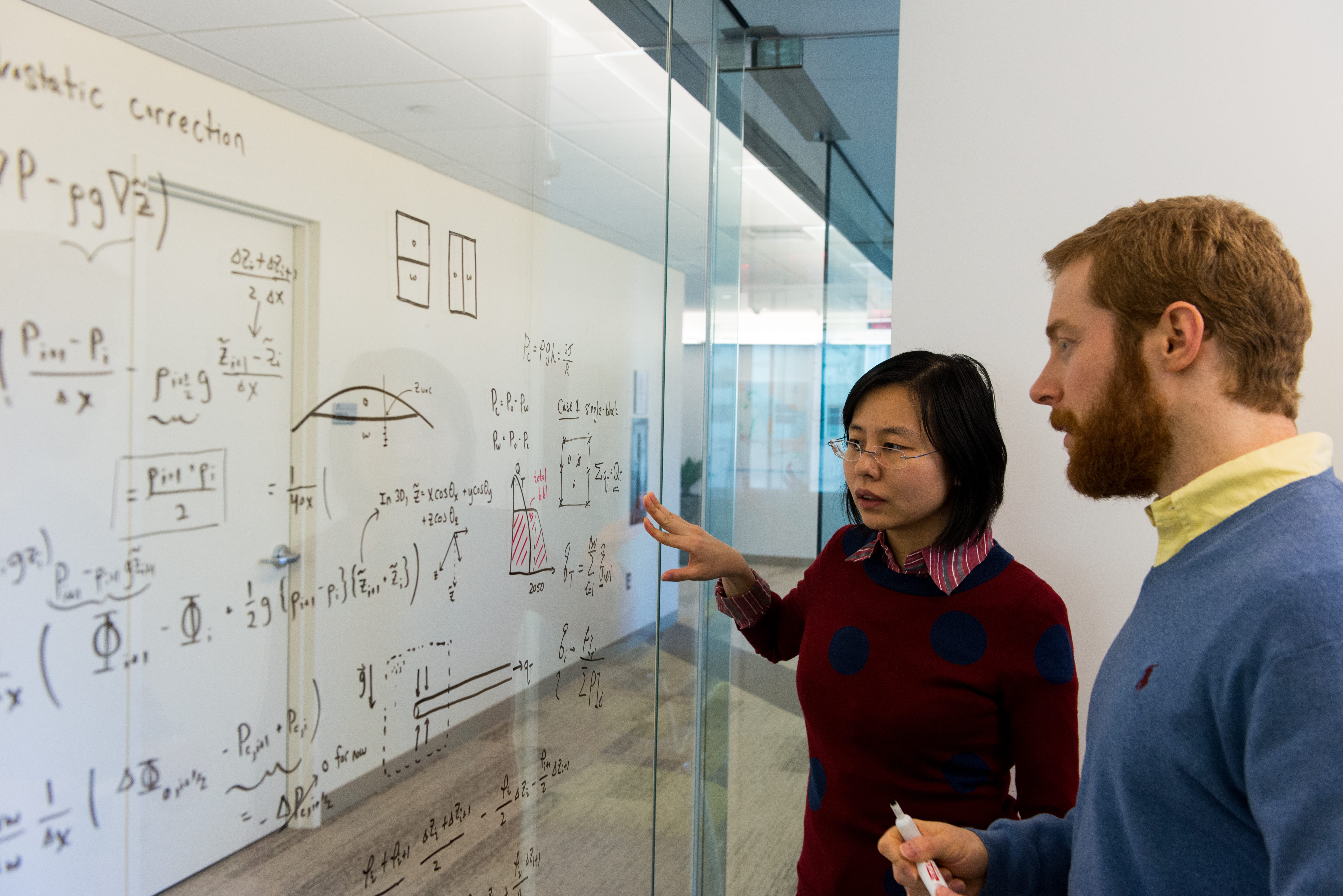
Nonmetallic solutions
At Aramco, we are developing technology solutions designed to address some of the world’s most pressing energy and materials challenges. Innovating nonmetallic materials is one such area in which we are aiming to make significant contributions.
Why are advanced nonmetallic materials important?
Corrosion is a major issue in industries around the world. A 2016 study estimated the global cost as U.S. $2.5 trillion, equivalent to 3.4% of global GDP at that time. This impacts businesses, governments, and society as a whole. Nonmetallic solutions — such as the development of advanced plastics — can play a role in helping to address this.
The objectives of our nonmetallic program
Mitigate
corrosion to enhance safety, integrity, and reliability of our operations.
Generate
revenue from new nonmetallic materials manufacturing investments.
Reduce
life-cycle costs by reducing the cost of corrosion, maintenance, or replacement.
Enhance
the value of our resources by converting oil into high-value nonmetallic products.

Our Pipelines Management Center, whose mission is to transport Aramco’s hydrocarbons while maintaining our high standards of safety, reliability, efficiency, and environmental responsibility.
Lightweight, durable, and cost efficient, nonmetallic materials could play a major role in the oil and gas industry. The benefits seen so far at Aramco — corrosion mitigation, faster installations, and life-cycle cost savings — have led to use of nonmetallic products growing exponentially within the company, with more than 10,000 km of nonmetallic pipes installed in a 5-year period in diverse applications across our conventional and unconventional assets, such as high-pressure oil, gas, and water.
Building on our success in our core operations, we expanded our nonmetallic business strategy to cover four additional sectors: Building and construction, Automotive, Packaging, and Renewables.
ِAramco and our affiliates are developing nonmetallic growth opportunities across five key industries:
Oil and gas
Our Nonmetallic Oil & Gas Strategy focuses on onshore, offshore, downhole, in-plant, and rehabilitation applications. Within these focus areas, we have deployed a variety of different products such as Reinforced Thermoplastic Pipe (RTP), Reinforced Thermosetting Resin (RTR), lining, downhole lined tubulars, nonmetallic completion tools, tanks, valves, cooling towers, and pumps. Our deployment in our oil and gas operations has exceeded 10,000 km of installed nonmetallic pipelines, and nonmetallic downhole products have been used in more than 750 wells.
Building and construction
The building and construction sector has huge growth opportunities for nonmetallic materials. Our focus is on increasing the deployment of polymers in concrete, cladding, flooring, and building accessories. To date, we have deployed more than 90 kt of polymers covering more than 75 applications, one of which is the deployment of 26 million linear meters of Glass Fiber Reinforced Polymer (GFRP) Rebars. These rebars consist of polymeric material reinforced by glass fibers as an alternative to conventional steel rebar.
Automotive sector
The automotive industry is already a large consumer of nonmetallic products. For example, carbon fiber reinforced plastics are lighter than steel, which could mean less fuel consumption, better vehicle performance, and lower emissions. We are promoting carbon fiber and polymer-based technologies, and we are exploring how to reduce the manufacturing costs of carbon fiber for mass production.
Packaging sector
There are opportunities for nonmetallic solutions related to polymer degradability and recyclability associated with the packaging industry, such as plastic pallets and containers. As an initial step, we are planning to replace our future demand of wood pallets with plastic pallets. To date, we have deployed more than 10,000 pallets and 40,000 drums and pails in our operations.
Renewables
In the renewables sector, we aim to replace glass in Solar Photovoltaic (PV) panels with polymeric materials, which have many advantages compared to conventional materials due to being lighter in weight, faster to install, and having a higher impact resistance while offering equivalent or higher performance. We are targeting different polymeric materials to achieve the required performance metrics.
Key milestones on Aramco’s nonmetallic materials journey

Khurais Oil Field
Our own application of nonmetallics is not new; we have been using nonmetallic pipes in our facilities for over two decades, and it is also standard for most utility applications in our plants. But it was our mass deployment of reinforced thermoplastic pipe (RTP), at our Khurais megaproject in 2015, that brought our use of the material to a new level.
RTP ensures there is no need for welding, and because the pipes can be spooled, laying them is easier than traditional options. For example, the Khurais RTP flowline tie-in and construction timeframe was reduced to less than two days, compared to the typical 70 days for laying carbon steel. RTP is a potential game-changer in the oil and gas industry, being longer-lasting, more cost-efficient, faster to install, and lighter in weight; all this has made for a less energy intensive installation process.

Global opportunities
Capitalizing on the growth opportunities in the oil and gas sector, we have developed global partnerships to accelerate innovation in nonmetallics. The Non-metallic Innovation Centre (NIC), in Cambridge, England, was established in collaboration with The Welding Institute and Abu Dhabi National Oil Company, to bring together partners from academia, oil and gas companies, composite material manufacturers, and other research entities to fast-track product development, testing, and commercialization.
In building and construction, we established the Center of Excellence for Nonmetallic Building Materials (NEx) with the American Concrete Institute (ACI) in Michigan, in the U.S., to promote the use of nonmetallic materials and products in the sector. This initiative is intended to support the Company’s broader strategy to enter new markets and expand the use of nonmetallic products.
At the start of 2022, we also launched a new center of excellence for nonmetallics, NEXCEL, in Beijing China, with the China Building Materials Academy (CBMA), to jointly advance the use of nonmetallics in building and construction. The center aims to serve as a central platform to expand and accelerate nonmetallic technology deployment in the building and construction sector.

Strategic Collaborations
We are also working with local and international suppliers, and research institutes, to promote the transformation of the nonmetallic ecosystem in the Kingdom, the GCC, and globally. We are collaborating with more than 38 global manufacturers and research institutes to develop new products across the five sectors. Currently, there are more than 40 research projects underway with academic institutions, technology organizations, manufacturers, and industry leaders. These efforts have so far resulted in the development of more than 75 lab and industrial scale prototypes with more than 50 filed and granted patents.
On the localization front, we aim to create positive economic impact and drive growth through establishing in-Kingdom nonmetallic industries. Across the five sectors, there are 127 localization investments at various development stages, and 26 investments have been realized across the sectors through our In-Kingdom Total Value Ad (Iktva) program. We are also establishing a nonmetallic hub at SPARK with an aim for it to become a world-class nonmetallic manufacturing hub for many nonmetallic products and services.
Nonmetallic materials and the future
We believe the growth, development, and application of nonmetallic materials has the potential to be transformational — and not just within our own industry. From applications in automotive and renewable industries to city planning and urban development, we believe that the increasing demand for more cost effective, durable, and longer-lasting materials will be significant.
Having identified this opportunity to diversify our Downstream activities and expand into nonmetallics, we are now positioning ourselves to take advantage of the opportunities in this sector, influencing research and development, innovating new technologies and products, and collaborating with leading international research institutions.

Carbon fiber solutions

Global research centers
Achieving the necessary technology breakthroughs requires access to the best ideas, people, and partners around the world.
